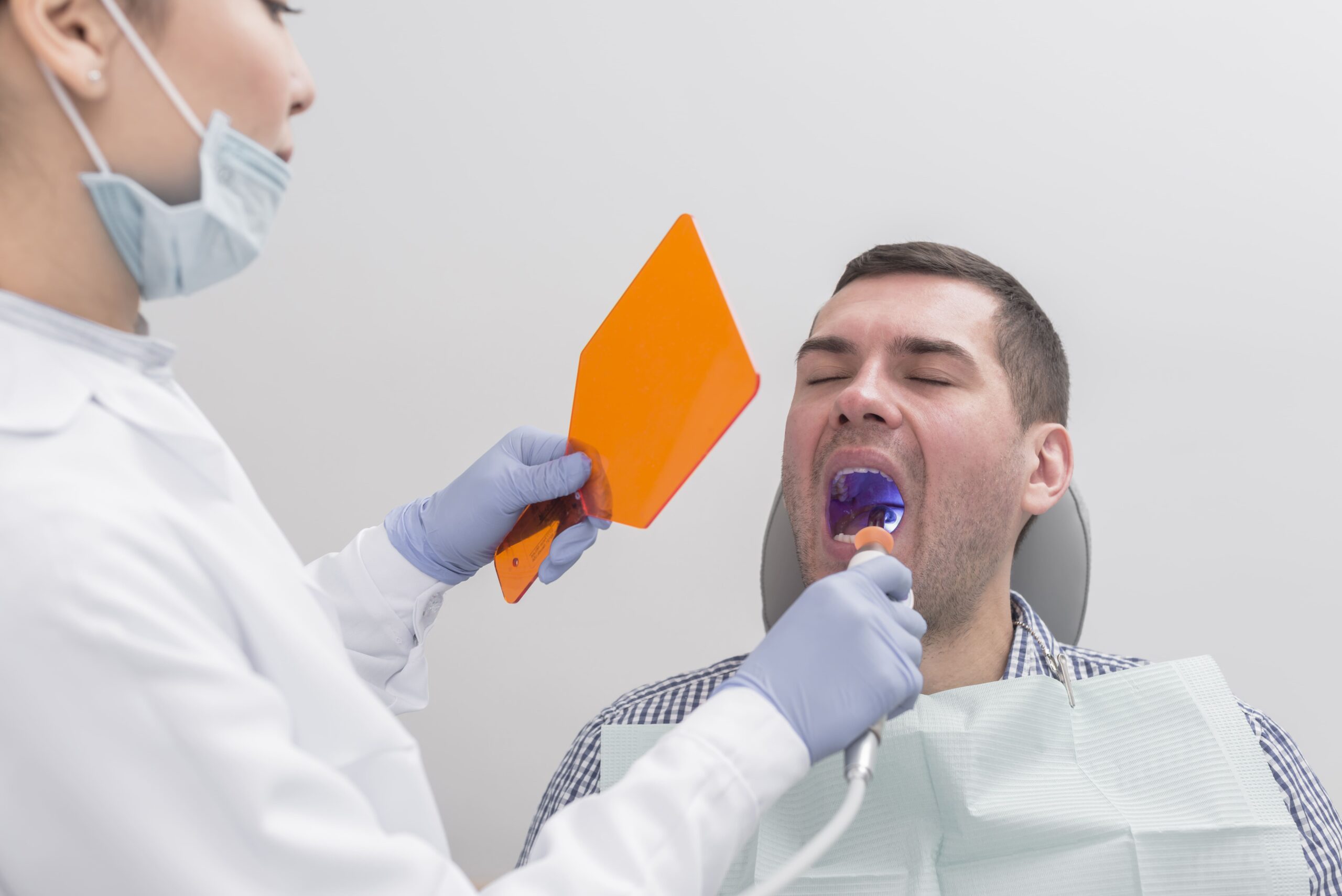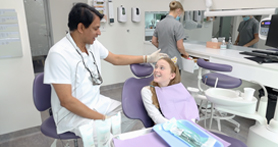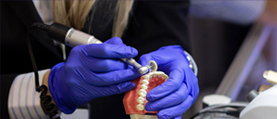Wisdom teeth removal, though a routine dental procedure, can sometimes lead to complications. While the procedure itself aims to alleviate discomfort and prevent future oral health issues, it’s essential to be aware of potential complications and how to mitigate them.
At Bespoke Dental, we prioritize patient care and education. In this article, we’ll explore common complications after wisdom teeth removal and provide practical tips to avoid them.
1. Swelling
Swelling around the extraction site and the cheeks is a normal part of the healing process, typically peaking within the first 48 hours post-surgery.
Prevention and Management:
Ice Packs: Apply ice packs to the outside of your face for 20 minutes on, 20 minutes off during the first 24 hours.
Head Elevation: Keep your head elevated, even while sleeping, to reduce swelling.
Hydration and Diet: Drink plenty of fluids and eat soft foods to avoid irritating the surgical site.
2. Bleeding
Bleeding is expected after surgery, especially within the first few hours. However, excessive bleeding can be a cause for concern.
Prevention and Management:
Gauze Pads: Bite down gently but firmly on gauze pads placed over the extraction site and change them as needed.
Avoid Strenuous Activities: Rest and avoid strenuous activities for at least 24 hours post-surgery.
Avoid Smoking and Alcohol: These can interfere with the healing process and exacerbate bleeding.
3. Dry Socket
Dry socket occurs when the blood clot at the site of the extraction is dislodged, exposing the underlying bone and nerves, leading to severe pain.
Prevention and Management:
Avoid Straws and Spitting: Suction actions can dislodge the blood clot, so avoid using straws and spitting.
Proper Oral Hygiene: Gently rinse your mouth with salt water after 24 hours to keep the area clean without disturbing the clot.
Follow Dentist’s Instructions: Strictly adhere to post-operative care instructions provided by your dentist.
4. Infection
An infection can occur if bacteria enter the extraction site, leading to pain, swelling, and possibly fever.
Prevention and Management:
Antibiotics: Take any prescribed antibiotics as directed by your dentist.
Oral Hygiene: Maintain good oral hygiene by gently brushing your teeth and rinsing with an antiseptic mouthwash.
Monitor Symptoms: Contact your dentist if you notice signs of infection such as increased pain, swelling, or pus.
5. Numbness
Numbness in the jaw, lips, or tongue can happen if nerves are irritated or damaged during the extraction. This is usually temporary but can be permanent in rare cases.
Prevention and Management:
Careful Monitoring: Choose a skilled oral surgeon to minimize the risk of nerve damage.
Report Issues: If numbness persists beyond a few days, report it to your dentist immediately.
6. Bruising
Bruising can occur on the cheeks and around the extraction site due to trauma from the surgery.
Prevention and Management:
Ice Packs: Use ice packs to reduce initial bruising.
Warm Compress: After 48 hours, switch to warm compresses to promote blood flow and healing.
Rest and Hydration: Ensure adequate rest and hydration to help your body recover.
FAQ
How do you know if your wisdom tooth extraction is healing properly?
Proper healing of a wisdom tooth extraction can be observed through several indicators. Over time, you should notice a decrease in pain and swelling around the extraction site. Typically, the healing process spans several weeks, during which the surrounding gum tissue should appear healthy and pink.
Bleeding should be minimal or absent after the initial 24 hours post-procedure. As healing progresses, you may find that your oral function improves, allowing for comfortable eating and speaking. Additionally, there should be an absence of concerning symptoms like fever or persistent pain.
How do you know if your wisdom tooth is infected?
Signs of an infected wisdom tooth include:
Persistent pain, especially when chewing.
Swelling, redness, and tenderness around the affected area.
Difficulty fully opening the mouth.
Fever or feverish feeling.
Bad breath or unpleasant taste.
Swollen lymph nodes in the neck or jaw.
Pus discharge from the gums.
Difficulty swallowing or breathing (rare but serious).
If you notice any of these symptoms, it’s important to seek dental care promptly to prevent complications.
Where can I schedule experts in wisdom teeth removal?
At Bespoke Dental, our team of skilled professionals is committed to providing personalized care and guidance throughout the wisdom teeth removal process, ensuring optimal outcomes and patient satisfaction. If you’re considering wisdom teeth removal or have experienced any complications post-surgery, don’t hesitate to schedule an appointment with us for expert care and support. Your oral health and well-being are our top priorities.




